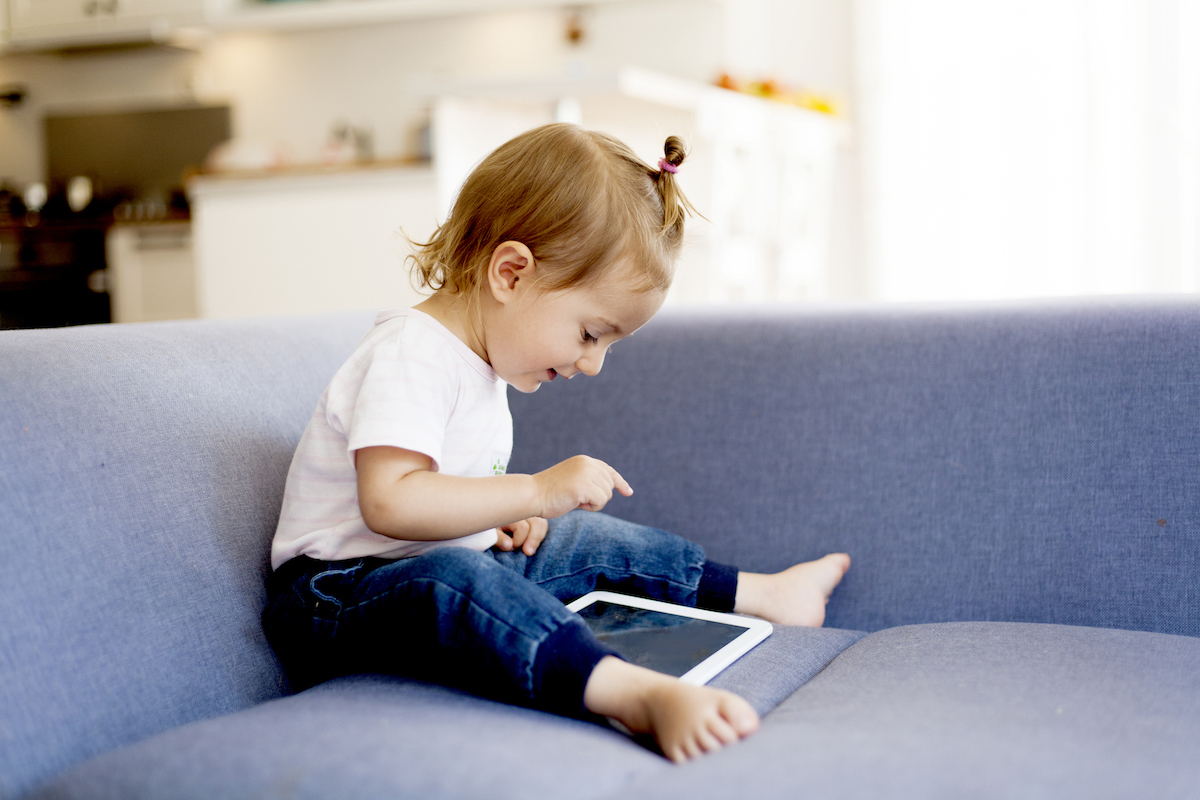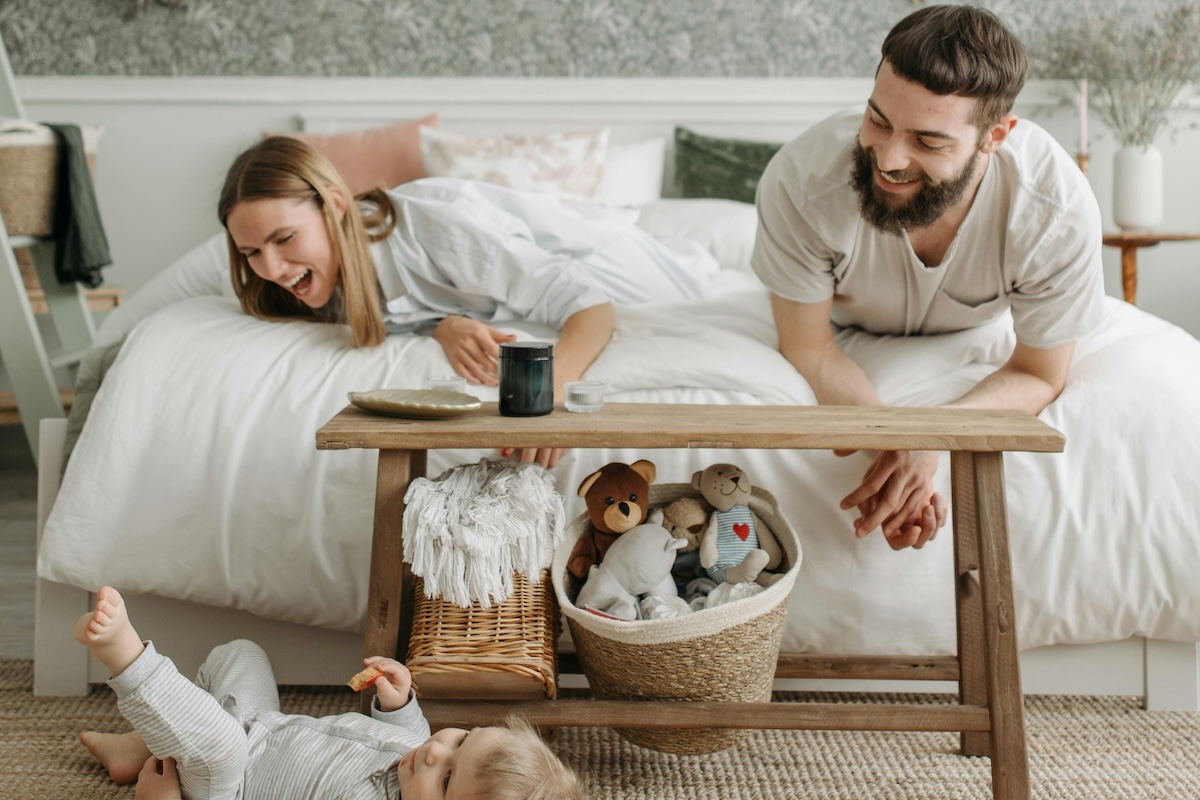There has been a lot of discussion of late about parental leave. Paid leave is part of the Build Back Better bill, along with many other programs. At some point it was pulled out and then put back in. It’s a huge policy priority for many women, in part because maternity leave* policies in the United States are appalling. Many people in the U.S. have no paid leave at all, and even unpaid leave (say, through the Family and Medical Leave Act, or FMLA) is typically capped at 12 weeks and is available to only about 60% of working people. This is in contrast to Europe, or virtually any other place in the world where maternity leave exists.
It has slowly started to change. Some states — notably California, New York, Rhode Island, New Jersey, Washington, and Washington, D.C. — have some type of mandated paid leave. These benefits typically extend only 6 to 12 weeks, but they’re at least something. And, if you are lucky, your job provides some paid leave. This could be up to three or four months, depending on where you work, or may be less. Technology firms have been working to set an example by providing many months (four, five, even six) and including both primary and secondary caregivers. Of course, you might not work at Facebook.
Why is this such a policy priority for many of us? When paid leave was pulled out of the Build Back Better bill (it’s now back in, for now), there was a huge outcry from many women. One reason is basic human decency: How can we expect women to return to work immediately after giving birth? But there is also a growing body of evidence showing that infants do better when their mothers have access to maternity leave.
In the U.S., for example, research has shown that babies benefited from the introduction of the FMLA. Economist Maya Rossin-Slater studied this by taking advantage of the fact that, since the FMLA provides only unpaid leave, it was more commonly taken among mothers who were slightly better-off. This allowed her to compare this group to others and show that the introduction of leave lowered premature birth rates and infant mortality.
Other work on this shows similar results. The broad conclusion from this literature is that early maternity leave is beneficial. Most of the studies focus on outcomes in infancy, but at least one study using Norwegian data showed that introducing a four-month paid maternity leave for moms led to higher education and even higher wages for their children when they grew up. These long-term effects were largest for the children of moms who were less well-off financially.
This is all to say that parental leave, maternity leave in particular, should be a policy priority. It should be one even if society cares only about babies and not moms. The FMLA gives unpaid leave; this doesn’t apply to everyone, and unpaid leave isn’t always feasible for people. We need paid leave.
Should parents not work at all?
When we talk about the value of parental leave, it’s hard not to veer into discussions of whether this means babies and children are better off if one parent stays home for a longer period. If four months is good, is a year better? What about five years? Certainly there are some more traditional voices (I’m looking at you, J.D. Vance) who would argue that, yes, the best option for children is to have a stay-at-home parent (usually the mom).
However: when we dive into this literature, the effects do not look like what we observe for early parental leave. Focusing on the younger age group, there is a set of literature (review here) that estimates whether it matters for kids if parents are home for, say, a year versus six months, or 15 months versus a year. These papers typically exploit data from Europe or Canada, where policies have been introduced at various times to extend maternity leave into these ranges.
It is important that these papers rely on changes in policy, rather than just differences across parents in the choices they make. Individual choices about whether or not to stay at home with children are wrapped up in all kinds of other characteristics of families. In contrast, policies impact choices without this concern. Extending maternity leave from six months to a year makes some women stay home for a year when they would otherwise have stayed home for six months. By comparing the outcomes of children who are born in the six-month maternity leave policy with those born in the year policy, we can learn about the effects of maternity leave without worrying about individual parenting choices.
The bottom line from this literature is that these parental-leave extensions have no effect on child outcomes — no effects on children’s test scores in school, on income later in life, or on anything else. In many cases, these studies have very long follow-up periods. We can say, for example, that one year of parental leave versus two years doesn’t influence a child’s high school test scores or earnings in early adulthood. Of course, one could argue that there are some other, unmeasured, outcomes for children that are different. We’ll never know. But the data we do see doesn’t suggest that it matters.
Studying the impacts of having a stay-at-home parent for older children (say, school-age) is more challenging, since we cannot rely on policy variation. Instead, papers that study this (here is an example) compare children whose mothers work with those whose mothers do not and try to adjust for differences across the two groups in other characteristics of the family, like race and maternal education. (Note that these papers nearly all focus on maternal employment; they assume fathers are employed if they are present in the household.)
The obvious issue is that the decision to work or not is not made randomly, and reflects other differences across families. Some papers are able to do a better job of adjusting for these differences, but it is virtually impossible to do so completely. It is not clear whether these differences are likely to bias results to be too favorable to maternal work, or not favorable enough. Basically, it’s very hard to learn from this data.
In my view (and there is much more on the subject in The Family Firm), the volume of evidence points in a couple of directions.
First: when we look at test scores, to the extent that there are either good or bad effects, they are extremely small. And in fact, the more compelling the study, the smaller the effects. The effects of working seem to be slightly more positive for mothers with less education, but all are small.
Second: there seems to be a small increase in obesity among children whose mothers work, and the mechanism seems to be more sedentary time after school. The effect is, again, small, and knowing the mechanism may make it avoidable if it is a concern.
Third: we do not have data to measure a lot of what we’d want to know about the impacts of parental work. In my case, one of the main reasons I am grateful my mother worked is that she showed me it was possible to be a great, involved parent and also have a career. I think this is part of the reason I do not feel guilty about working. This is a kind of modeling argument, which isn’t covered in the data. And there are outcomes like marital happiness, or mental health, which could go in either direction. We cannot boil down our family outcomes to (a) test scores and (b) childhood obesity. And yet the data does, meaning that even its flawed and probably biased findings are incomplete.
In conclusion
Paid parental leave, especially paid maternity leave, should be a policy priority. It benefits infants and parents.
When it comes to the ultimate choice of working or not, though, the data suggests that it doesn’t matter much either way for children. Which, to me, means that other family considerations should take precedence. This includes financial and logistical issues, and also a consideration of what parents want. In my case, the biggest reason I work outside the home is because I like it. Sometimes it seems taboo to say so, but I think it shouldn’t be.
* I will refer to maternity leave here since this has been the primary historical form of parental leave.
Community Guidelines















